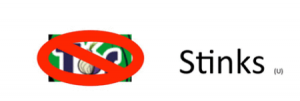[youtube]U-yLQPO_8E0[/youtube]
Yesterday, the Guardian revealed that the NSA is storing online metadata (including browsing information) for up to a year.
The National Security Agency is storing the online metadata of millions of internet users for up to a year, regardless of whether or not they are persons of interest to the agency, top secret documents reveal.
[snip]
The guide goes on to explain Marina’s unique capability: “Of the more distinguishing features, Marina has the ability to look back on the last 365 days’ worth of [Digital Network Information] metadata seen by the Sigint collection system, regardless whether or not it was tasked for collection.” [Emphasis original.]
So in addition to our phone metadata, the government is keeping our browsing metadata in case it needs it.
Remember, over a fifth of the query violations recorded by the NSA in the first quarter of 2012 accessed this database.
As interesting as this disclosure is, I’m just as interested in the way NSA responded to Guardian’s request for a rationale for this practice and some sense of how much of it includes US person data.
The Guardian approached the NSA with four specific questions about the use of metadata, including a request for the rationale behind storing 365 days’ worth of untargeted data, and an estimate of the quantity of US citizens’ metadata stored in its repositories.
But the NSA did not address any of these questions in its response, providing instead a statement focusing on its foreign intelligence activities.
“NSA is a foreign intelligence agency,” the statement said. “NSA’s foreign intelligence activities are conducted pursuant to procedures approved by the US attorney general and the secretary of defense, and, where applicable, the foreign intelligence surveillance (Fisa) court, to protect the privacy interests of Americans.
“These interests must be addressed in the collection, retention, and dissemination of any information. Moreover, all queries of lawfully collected data must be conducted for a foreign intelligence purpose.”
It continued: “We know there is a false perception out there that NSA listens to the phone calls and reads the email of everyday Americans, aiming to unlawfully monitor or profile US citizens. It’s just not the case.
“NSA’s activities are directed against foreign intelligence targets in response to requirements from US leaders in order to protect the nation and its interests from threats such as terrorism and the proliferation of weapons of mass destruction.” [my emphasis]
This non-answer does three things.
- As with Ron Wyden’s repeated requests for the number of Americans targeted through the back door loophole, the NSA refuses to quantify the scope of this collection
- It names all the spying on US person data “foreign intelligence” as a means to legitimize it
- It denies accessing the content of “everyday Americans” rather than denying it accesses the content of Americans, period
I’m beginning to realize why NSA keeps responding with that last bullet — we are not reading your content. More and more, it appears not to be a denial that they access US person content (once you get into Internet “metadata” you’re quickly getting into content in any case), but rather a denial that they access the US person content of “everyday Americans.” Which suggests they do access the content of certain Americans who, because their activities might fall under categories the NSA claims “US leaders” have deemed foreign intelligence, are no longer considered “everyday Americans.”
And once you get beyond the fearmongering excuse of terror terror terror, you realize this is not just Muslims and Arabs (not that that would make it right in any case).
We live in an increasingly globalized world in which “everyday Americans” have a wide range of entirely legitimate reasons to engage with people outside of this country. At the core of this dragnet, it appears, is the argument that such legitimate activities somehow exclude you from the designation of “everyday Americans.”
But it’s not going to disclose whether it considers you an “everyday American” exempt from all this domestic-as-foreign spying or not.
Update: Musical accompaniment suggested by billmon.



